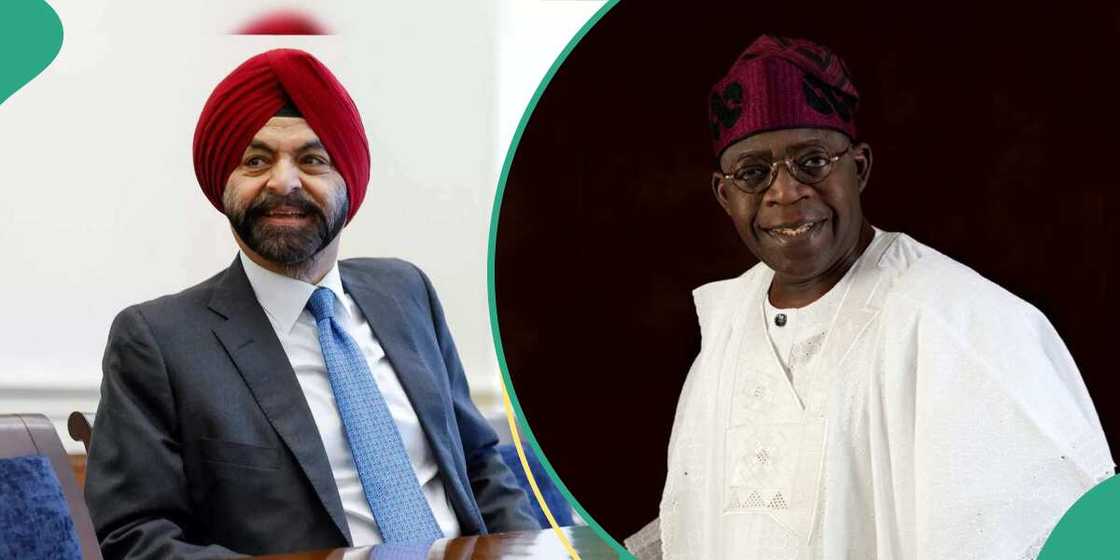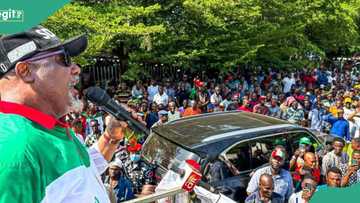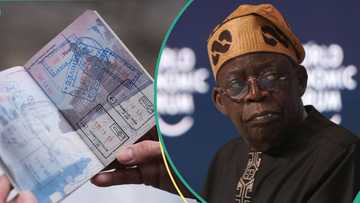World Bank Places 58 Nigerian Businesses, Individuals on Blacklist
- A total of 58 Nigerian businesses and individuals are identified on the World Bank blacklist for participating in unethical practices
- They include 39 Nigerian enterprises that the African Development Bank (AfDB) had previously prohibited and 19 people named by the World Bank
- This means that the indicated persons and institutions will no longer be able to participate in any projects sponsored by the World Bank
Legit.ng journalist Zainab Iwayemi has over three years of experience covering the Economy, Technology, and Capital Market.
As part of its continued efforts to maintain integrity and transparency in its projects and operations, the World Bank has placed 58 Nigerian businesses and individuals on a blacklist for participating in unethical practices.

Source: UGC
Affected parties include 19 people named by the World Bank under the cross-debarment policy and 39 Nigerian enterprises that the African Development Bank (AfDB) had previously prohibited.
BusinessDay reported that the most recent World Bank's list, updated every three hours, included 1,210 businesses and individuals worldwide.
Implication of World Bank's action
A debarment prevents businesses or people from participating in initiatives and activities funded by World Bank Group organisations.
The World Bank report states that the penalties were imposed after it held an administrative procedure that allowed the accused companies and individuals to address the accusations.
It added that the Bank's protocols for penalty actions and settlements about bank-financed projects were followed throughout this process.
It stated in the report:
“Through July 2007, this process was conducted by the Sanctions Committee Procedures adopted on August 2, 2001. The process is currently conducted in accordance with Bank Procedure: Sanctions Proceedings and Settlements in Bank Financed Projects. For more information on the two-tier sanctions process go to Sanctions,”
What you should know about cross-debarment
Cross-debarment was implemented in compliance with the agreement of April 9, 2010, as stated in the Agreement for Mutual Enforcement of Debarment Decisions.
The World Bank, Asian Development Bank, European Bank for Reconstruction and Development, Inter-American Development Bank, and African Development Bank are among the international financial organisations that have helped to make this agreement successful.
The Bank retains the power to take further measures against companies and people deemed to be in breach of its policies, some of which may not even include debarment.
The World Bank Procurement Regulations for Investment Project Financing Borrowers and the relevant Procurement or Consultant Guidelines both outline the prohibited conduct that results in debarment. The particular rules may change based on the type of project at hand.
Nigeria expecting $2.25 Billion World Bank loans
Legit.ng earlier reported that the World Bank may approve another $2.25 billion in loans for Nigeria across two significant projects on June 13, 2024.
Official documents showed that the funds would be shared between two projects to boost Nigeria’s economic stability and resource mobilisation capabilities.
One of the projects, reportedly named Nigeria’s Reforms for Economic Stabilisation, is to enable the Transformation (RESET) Development Policy Financing (DPF) and is set to receive $1.5 billion in funding.
Proofreading by James Ojo Adakole, journalist and copy editor at Legit.ng.
PAY ATTENTION: Donate to Legit Charity on Patreon. Your support matters!
Source: Legit.ng





